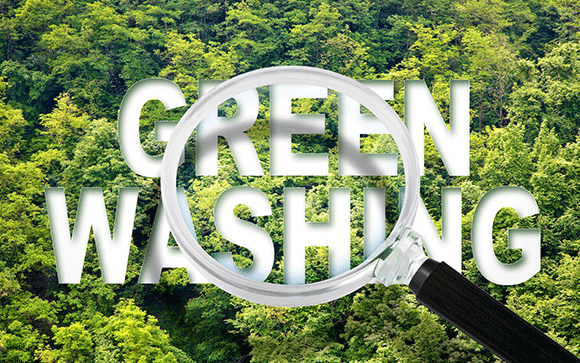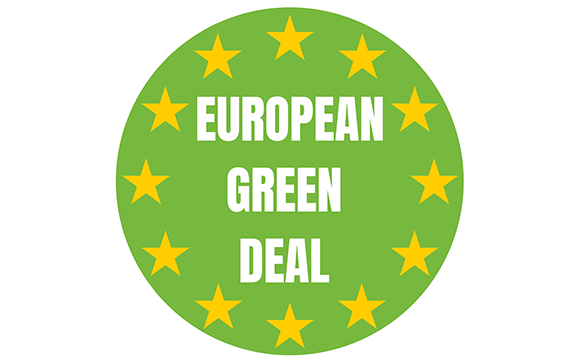Greenwashing: regulation focus
Dealing with greenwashing is a complex matter, especially in an ever-evolving landscape of ESG reporting and regulation.
Dealing with greenwashing is a complex matter, especially in an ever-evolving landscape of ESG reporting and regulation.
The boom of ESG (Environmental, Social, and Governance) regulations is challenging for many companies. Their number has been multiplied by x2.5 (+ 155%) between 2011 and 2021, according to a study conducted by ESG Book.
In the middle of this battlefield, greenwashing practices are a concern. Deceived consumers lose trust in companies that misled them with fake claims. But more importantly, consumers may lose faith in the overall concept of brand sustainability. Let’s clear things up.
What exactly is greenwashing?
First, let’s define what is greenwashing.
Greenwashing is the practice of making people believe that your company is doing more to protect the environment than it actually is. How? By making misleading or false claims about the environmental benefits of a product or service.
Greenwashing capitalises on the growing demand for sustainable practices without delivering on those promises. It is more present than we think since it is tough to detect and many companies engage in it to varying degrees.
Some common greenwashing tactics include:
- Using vague or ambiguous language,
- Making unsubstantiated claims,
- Highlighting one small environmental attribute while ignoring others,
- Applying “green” or “eco-friendly” symbols or labels that suggest environmental benefits without providing any evidence.

Indeed, dealing with greenwashing is a delicate matter. Consumers are becoming increasingly aware and attached to environmental, social, and governance (ESG) issues. To align with this demand, companies feel pressured to show their commitment to sustainable practices at all costs. This pressure can lead to greenwashing, as some companies exaggerate or misrepresent their efforts to appeal to consumers.
For example, a company may make misleading claims about its sustainability efforts due to a misinterpretation of ESG criteria, even if it has made genuine efforts to improve its sustainability performance.
The complex and ever-evolving landscape of ESG regulation makes it harder to assess. Therefore, companies must take a proactive and transparent approach to ESG reporting and communication.
Nowadays regulations in Europe and the UK
The EU and the UK are implementing laws and regulations to tackle greenwashing issues and guide consumers towards more sustainable products
In 2019, the European Commission launched the European (EU) Green Deal to tackle false environmental claims. How? By requiring that consumers receive reliable, comparable, and verifiable information to make more sustainable decisions and to reduce the risk of greenwashing.

The Green Deal led to the proposed EU Green Claims Directive, tabled by the European Commission in March 2023. This Directive aims to harmonize the evaluation and monitoring of green claims towards EU consumers and control the accumulation of public and private environmental labels.
The world of finance is concerned by these matters too. Investors want more detailed ESG reporting. To answer this, the EU has introduced a new law to prevent greenwashing in the financial sector. The SFDR (Sustainable Finance Disclosure Regulation) requires financial market parties to disclose information on the sustainability of financial products and the impact of sustainability risks on their investments.
How you can act on greenwashing and comply with regulations
As a business, you must ensure your green claims aren’t misleading since your reputation is at stake. To ensure this, the British CMA (Competition and Markets Authority) created the Green Claim Code to help companies stay on course and avoid misleading their customers.
To follow the code, ask yourself these 6 questions:
- Are your claims truthful and accurate?
- Are your claims unambiguous?
- Do your claims omit or hide important information?
- Do your claims only make fair and meaningful comparisons?
- Have you substantiated your claims?
- Do they consider the full life cycle of a product?

The EU Green Claims Directive proposes the following key requirements to prevent greenwashing practices. Green claims must:
- Be subject to third-party verification before being made public,
- Use widely recognized scientific evidence,
- Compare a competitor's product under specific conditions,
- Include a specified time frame for achieving claimed milestones,
- Be transparent when it comes to CO2 offsetting,
- Transparent, accessible, free of charge, easy to understand, and sufficiently detailed.
- Not use aggregate scoring of a product’s overall environmental impact, unless based on EU rules or labeling schemes,
- Be based on information available to the public in physical form, via a web link, via a QR code, or equivalent.
To dig deeper into the topic, read our article about regulations for 2024: everything you need to know so far.
Conclusion: leading the way in eco-responsible practices
It's a real challenge to stay ahead of the game in the ever-evolving regulatory landscape of sustainability. To stay up-to-date, your company should think proactively and anticipate ESG trends before they become mandatory.
This means assessing your current practices, gathering data on your sustainability impacts, and developing a plan to comply with new disclosure requirements.
Aligning with current and future regulations and standards is a great way to build trust with consumers, show your commitment to sustainability, and contribute to a more responsible and sustainable business environment. You might even position your brand as a pioneer in sustainability.
Look for companies with solid ESG credentials like Ecovadis or Global Compact. These prove well on significant actions taken. Speaking of eco-responsible practices, Antalis has just published its first ESG Report.







